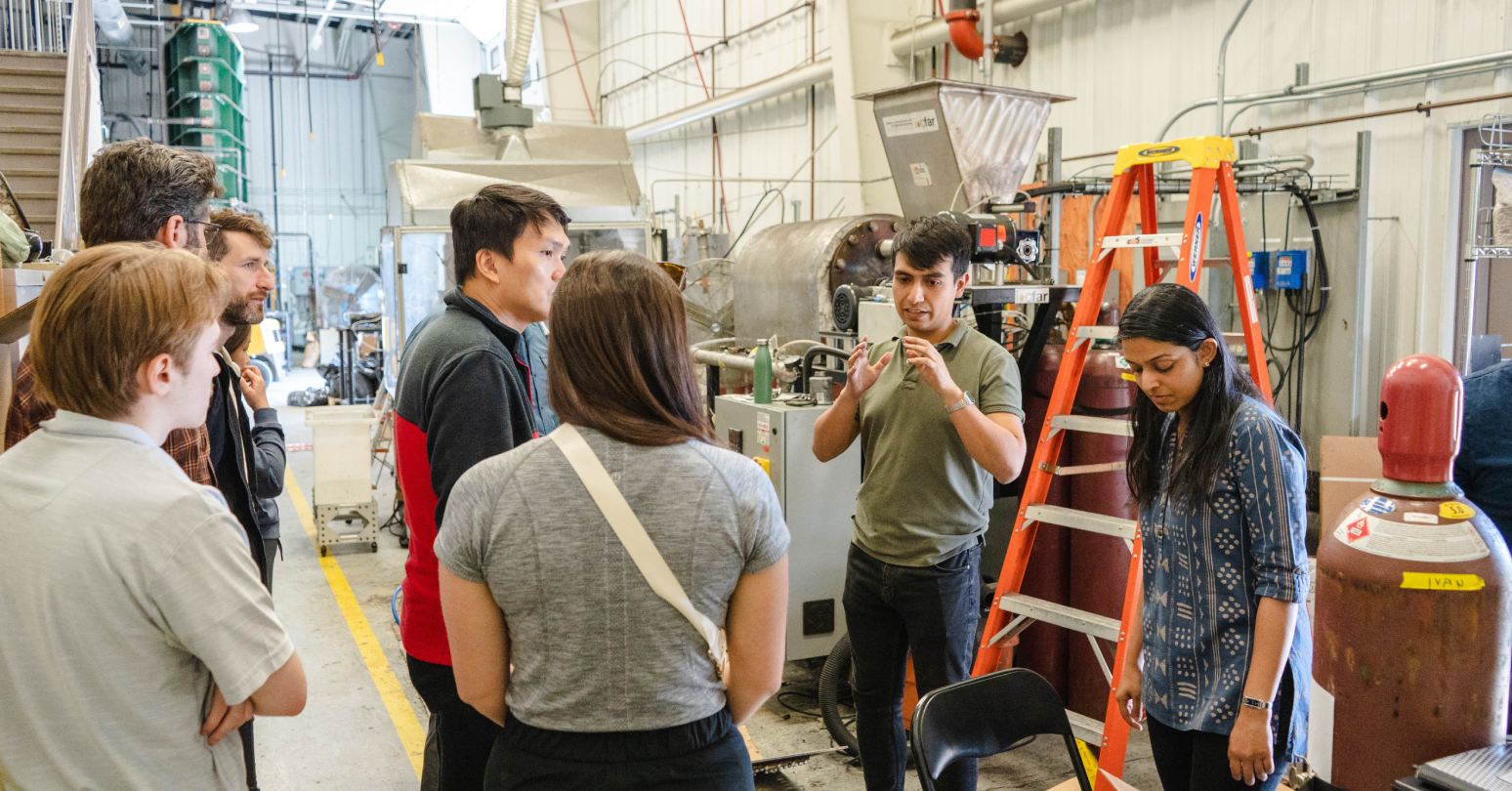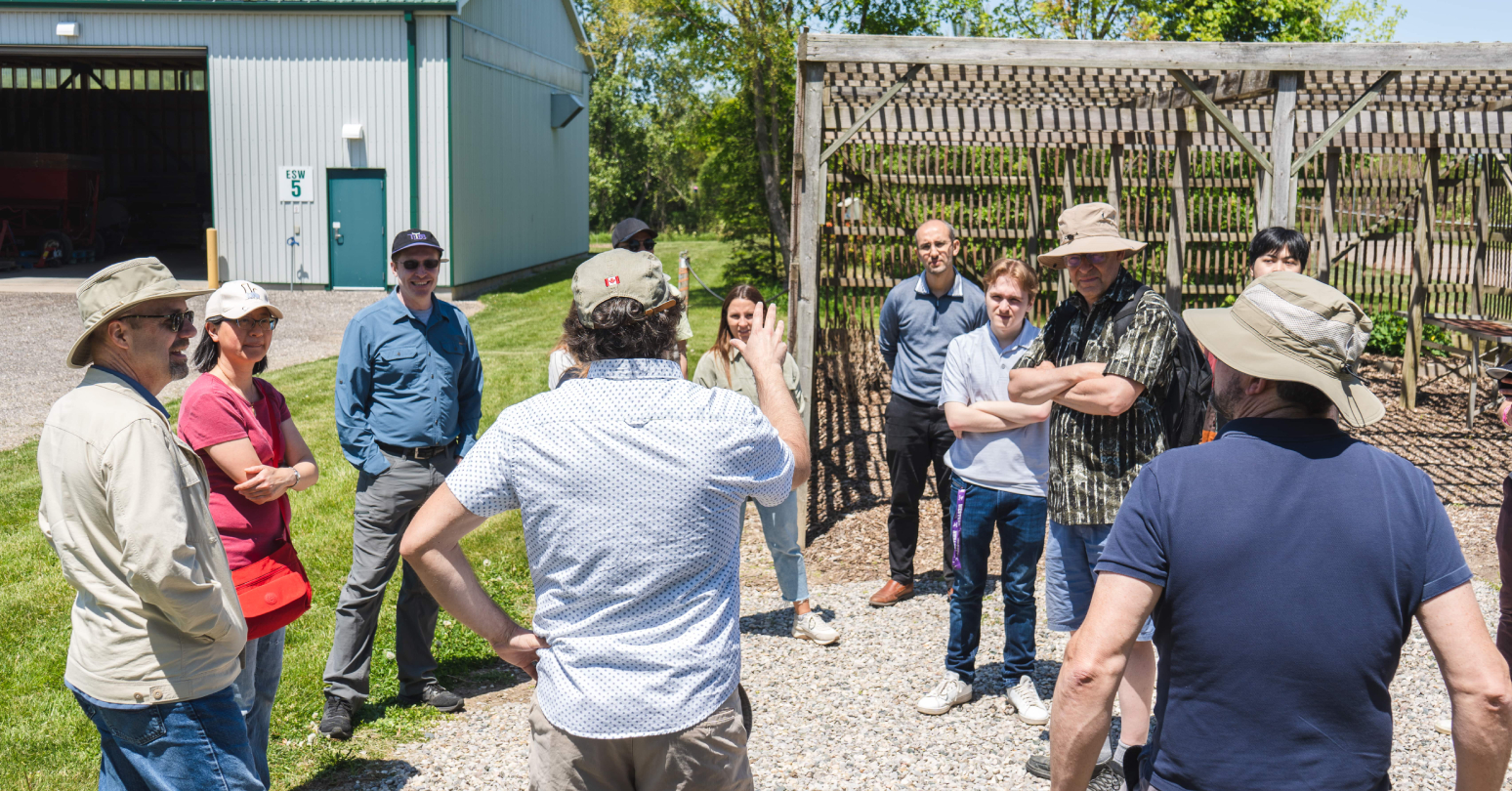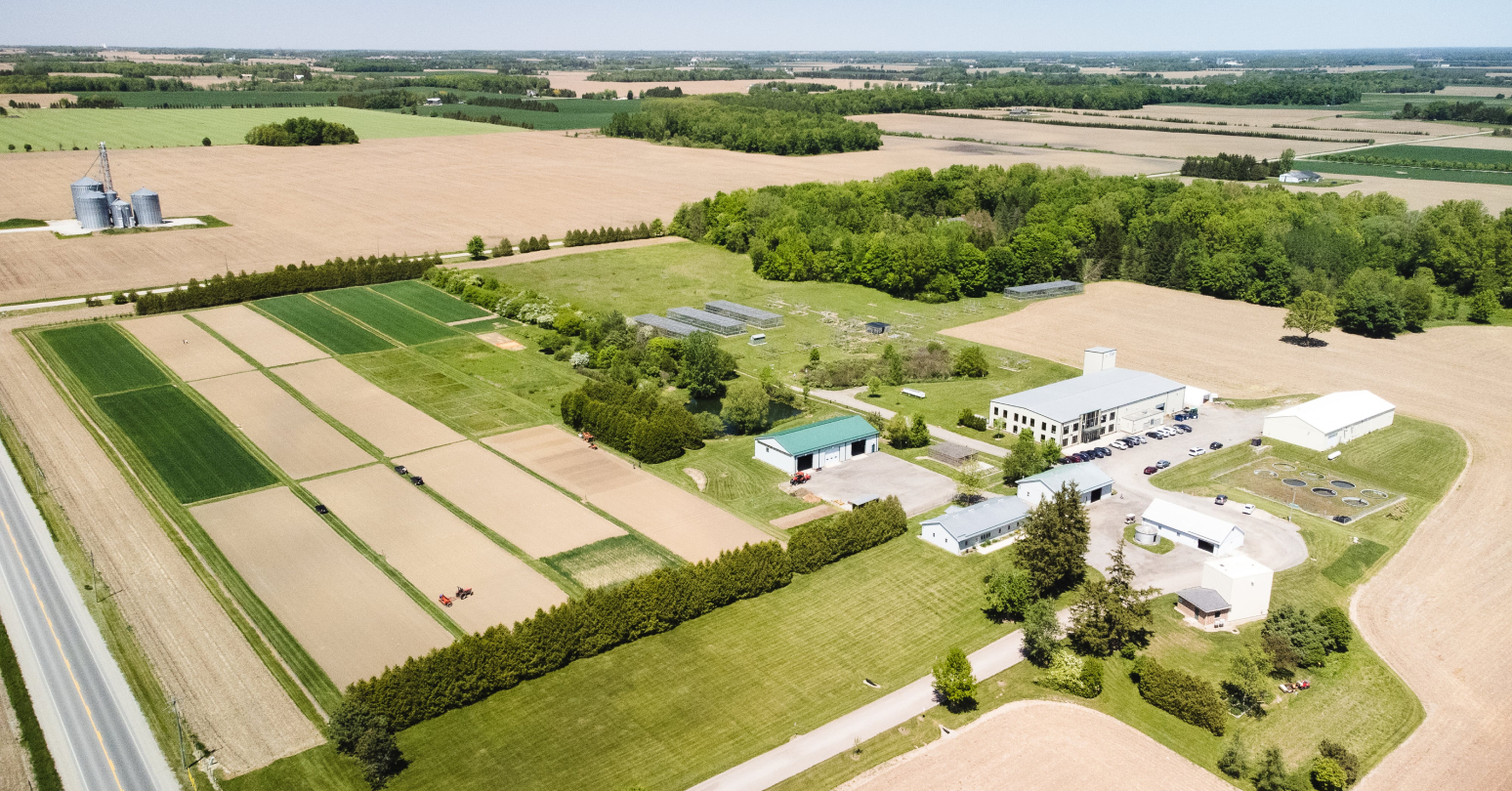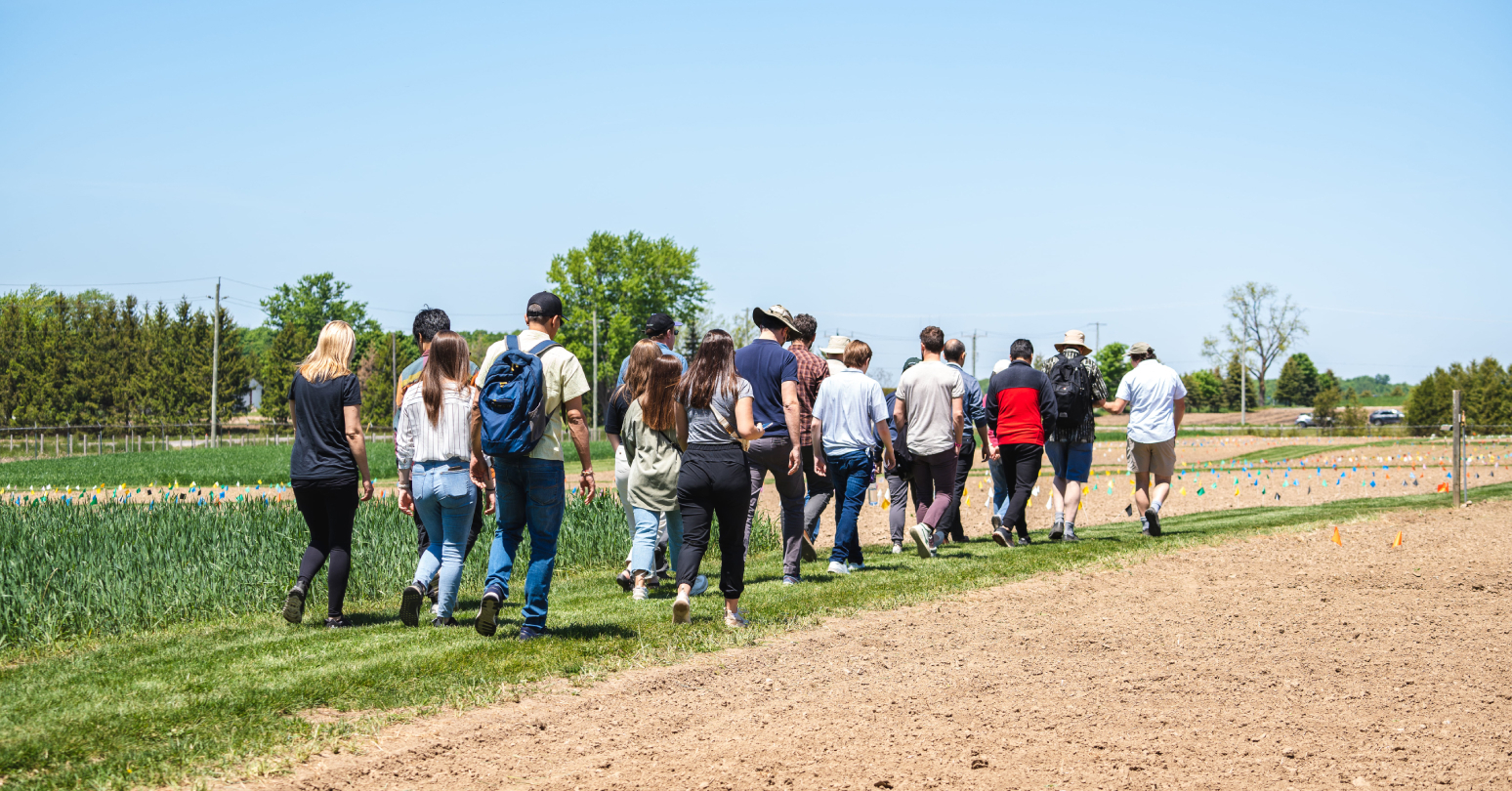On a nice spring day, Sustainability group faculty members, PhD students, and researchers from the Ivey Business School embarked on an exciting field trip to explore sustainability-related research happening across Western’s vast campus. The journey included immersive tours of the Biotron Experimental Climate Change Research Centre, the Environmental Sciences Western (ESW) field station, and the Institute for Chemicals and Fuels from Alternative Resources (ICFAR).
Getting out of their offices and classrooms and into nature was refreshing for many. Stepping into the field gave the researchers a tangible connection to the issues they study and a fresh perspective on the impact of their work. The day proved to be an invaluable learning experience - participants learned about what is being done to measure climate change, what field biologists are focused on, and identified prospects for collaborative efforts to advance sustainability. Through the interactions, it was evident there is a united effort to understand how scientific research and the dynamic business world can interconnect.

Biotron tour sparks deeper passion for climate action
The trip began with a tour of the Biotron, where researchers were studying how natural ecosystems respond to a changing environment, and how such changes impact the well-being of both the natural and human world. We saw both the biomes and environmental growth chambers simulating potential future climate conditions like higher temperatures and increased carbon dioxide. Researchers were observing how these plants adapt and survive under these conditions.
We then visited the Earth Biome lab, where researchers investigated the effects of climate change on soil structure. A remarkable project involved collaboration with an Indigenous researcher to analyze toxins and sediments present in a lake adjacent to their community. As a result of human activity and industrial waste production, fish and other wildlife in the lake, which the community relied on for food, were contaminated. This was already causing adverse health effects for the community. Western researchers and the community are working together to present their findings to the government, enabling better protection measures for the community.
The Biotron tour served as a powerful reminder of the urgent need for proactive measures to mitigate the impact of climate change, fostering a collective sense of responsibility to safeguard our planet and the diverse communities that inhabit it.

A bright future lies ahead for the agri-food sector
A tour of the ESW field station led by Hugh Henry, Professor in the Department of Biology and Director of the field station, followed. We toured around soil plots used in various experiments. We explored plots treated with soil amendments aimed to foster plant growth and enhance resistance to pests, all while investigating soil carbon sequestration. Sustainability faculty were particularly captivated by these findings and their relevance to the Centre for Building Sustainable Value’s (BSV) agri-food industry transformation agenda. We also toured around the ICFAR facilities, which specializes in biomass and waste conversation, and more. The facility inspired those at Ivey who closely study circularity, a top priority for the Centre.

The knowledge imparted during our visit illuminated a path of hope for the future of agri-food production and climate change mitigation. The potential benefits of these research initiatives were both encouraging and inspiring. We departed with a newfound sense of enlightenment and appreciation for the possibilities that future sustainability initiatives and collaborations between Ivey and the natural sciences can bring.



